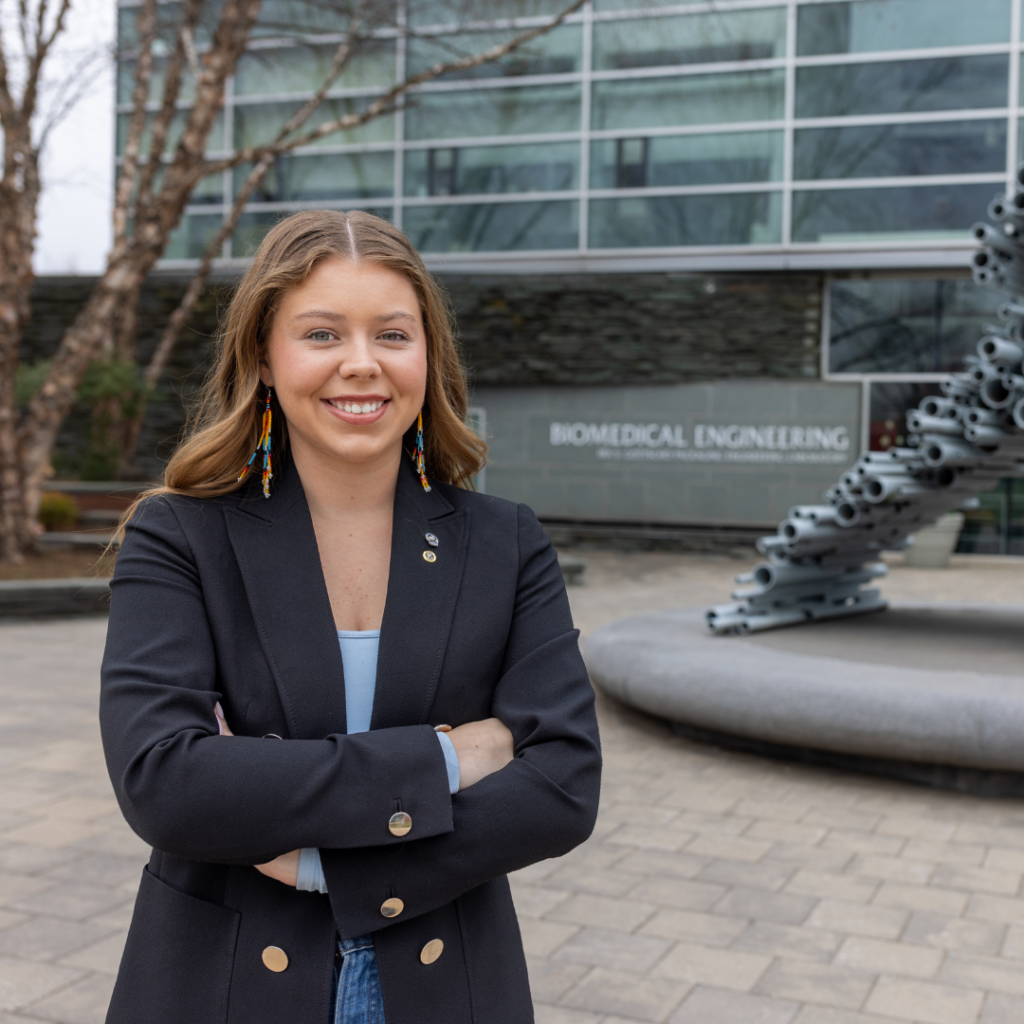
Written by 2025 Champion for Change Katie Lynch, a proud Citizen of the Potawatomi Nation and scholar-activist, passionate about improving the health of Indigenous communities.
Katie is a Ph.D. Student in Health Infrastructures & Learning Systems at the University of Michigan Medical School as a Rackham Merit Fellow. She graduated Magna Cum Laude with a degree in Biomedical Engineering from Rutgers University in 2024. She is a trained peer educator on social justice topics, a mentor to young Indigenous women in STEM and recipient of the 2024 STEAM Trailblazer Award – the first Indigenous student in Rutgers’ history to be recognized by the Udall Foundation.
For more than eleven centuries, my people have recounted and endured the prophecies of the Seven Fires. We believe we are a Seventh Fire, a revival of traditional culture, language and teachings passed down to us by our elders. Through us, our heritage lives on. In Potawatomi, we say shkodedeajek – the people who carry fire in their hearts. There is fire in my heart. To reimagine healthcare for Indigenous people, I am taking the pieces of a STEM education that are useful, taking the pieces that are radical and revelatory, and retooling them into solutions that will serve community needs and Indigenous futures.
I am a scholar-activist, community-builder and artist. All of these intersecting identities have led me here today and fueled my desire to use science to create change in my community. I am an Indigenous engineer, and those two identities are not separate; they have to coexist. My indigeneity is not separate from my identity as an academic – my cultural values influence how I view science, and how I view the world. As a Ph.D. Student in Health Infrastructures & Learning Systems at the University of Michigan, my research focuses on building frameworks for Indigenous systems of care that increase access to culturally-relevant healthcare interventions for our communities. Indigenous epistemologies uniquely account for place, context and holistic relationships, rather than separating parts of the whole. To support the strength and resilience of Indigenous knowledge systems, it is imperative that we create liberatory research paradigms that collaborate with communities and highlight what is right with them rather than what is wrong.
I stand on the shoulders of my relatives and fellow Indigenous women in STEM that have fought for me to be where I am today. The first time I stepped into a research lab, I felt nervous and out of place. But my mentors have taught me there is always a place for Native women in STEM. I am filled with joy and gratitude for the current and future generations of changemakers and Indigenous women in STEM – Dr. Krystal Tsosie, Dr. Tara Maudrie, Danielle Boyer, Kianna Pete, Tommey Jodie, Jaidyn Probst, Dominique Pablito – I could go on and on listing strong Native women and how much hope they give me for the future.
I envision a future where traditional medicine and healing are accessible as a form of healthcare, where all Indigenous peoples have access to their ancestral foodways and where Native women dominate STEM fields. For my community in particular, I envision a future where we rematriate our land. When I drive through our trust land in Oklahoma, and the allotment that used to be owned by my family, I know no one could possibly love that land as much as we do. I dream about a world of sovereignty, and self determination over our bodies, minds and land. With my voice and my education, I will uplift my Indigenous community, tackle healthcare injustice, and work to restore sovereignty so that future generations can live in a world where their indigeneity is celebrated.


 Democracy is Indigenous
Democracy is Indigenous